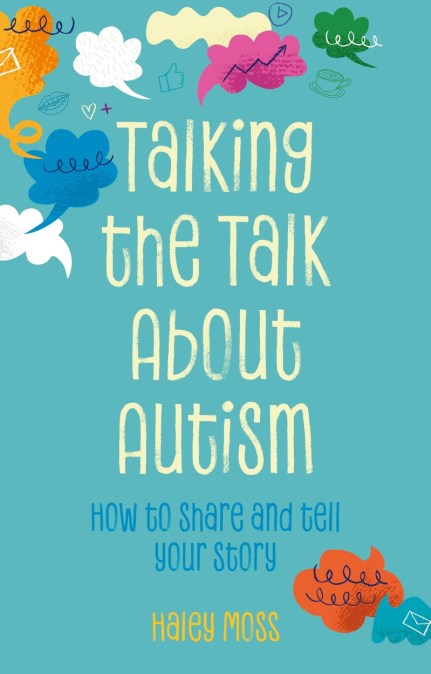As autistic self-advocates, our personal stories hold a lot of power: they are sources of strength, tales of overcoming barriers and adversity, and a way for us to assert agency and receive the support we might need. But how do you actually disclose your diagnosis? How do you tell teachers, support staff, colleagues, friends, or anybody else about your disability and account for their varied reactions? Or, if you’re a parent or ally, how do you tell the person you’re supporting about their own neurodivergent identity and culture?
Disclosure is often a thorny topic, but in this powerful and supportive book, Haley Moss explores the language, history, and stigmas that influence how people perceive autism, breaking down ways to approach conversations about neurodivergence in different contexts. By deconstructing fears around disclosure, Talking the Talk About Autism shows how the experience can be made more impactful, safe, and less nerve-wracking for all those involved.
Disclosure is often a thorny topic, but in this powerful and supportive book, Haley Moss explores the language, history, and stigmas that influence how people perceive autism, breaking down ways to approach conversations about neurodivergence in different contexts. By deconstructing fears around disclosure, Talking the Talk About Autism shows how the experience can be made more impactful, safe, and less nerve-wracking for all those involved.
Newsletter Signup
By clicking ‘Sign Up,’ I acknowledge that I have read and agree to Hachette Book Group’s Privacy Policy and Terms of Use
Reviews
What do I say? Whom do I tell? When do I share? Talking about an autism diagnosis is chock full of complicated navigation - and even with the best, most positive intentions, there are landmines peppering every conversation. In Haley Moss's new book, readers will find real-world answers to guide them through what-if scenarios and around surprises, ending up with a healthy dose of neuro-fabulousness. Welcome to the spectrum - Haley's got your back.

